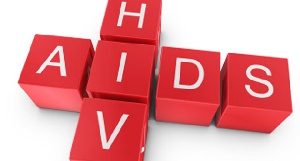The Executive Director of UNAIDS, Michel Sidibe, on Monday urged African mayors to move to a fast-track approach to quicken the pace of implementation of HIV services.
This is because they are positioned to shape cities into incubators for implementing strong, rights-based responses to HIV and other urban challenges.
Sidibe was speaking at the opening of the 4th Summit of Mayors and leaders from Africa and African descent in Accra under the theme: “Cities Leading Sustainable Human Development and Economic Empowerment for Africa and the Diaspora”.
The mayors are meeting to discuss how to improve Economic Empowerment between Africa and the Diaspora.
Sidibe said the mayors had all the tools needed to leverage the historic opportunity before them – groundbreaking science, implementation know-how, political commitments and national governments committed to share responsibility.
“But if this was enough to end AIDS as a global public health threat, we would have done it by now. We need to do more, connect more. We need to be bolder than ever before – and we need to do it now,” said Sidibe in a statement read on his behalf by his Senior Advisor, Dr Djibril Diallo.
“If we continue business as usual, maintaining today’s global AIDS response at the current pace, we will not end the epidemic. We will lose ground, the epidemic will bounce back and all the gains we are seeing in 2015 will vanish,” he said.
According to a comprehensive modeling done by UNAIDS, “we have a narrow, five-year window to significantly scale up HIV treatment, prevention and tackle discrimination to end the AIDS epidemic by 2030”.
“Within this window, we must reach the point where 90 percent of all people living with HIV will know their status, 90 percent of all people diagnosed with HIV are receiving antiretroviral therapy, and 90 percent of all people on treatment are virally suppressed.”
Sidibe said reaching the 90-90-90 target would avert all AIDS-related deaths over the next 15 years and 60 percent of all infections, adding that this could be achieved only if major achievements were also made in ending discrimination and supporting the rights of people living with HIV and others who are vulnerable.
Over 50 mayors around the world have signed the Paris Declaration on Fast-Track Cities: Ending the AIDS Epidemic to end the AIDS epidemic in their cities.
Ghana’s Vice-President Kwesi Amissah-Arthur, who opened the meeting, challenged mayors worldwide to use their influence to empower women and improve on education.
He said the Ghanaian government took the issue of women seriously and it was for this reason that more women had been appointed in government.
The President of the Global Alliance of Mayors and leaders from Africa and African descend, Alfred Oko Vanderpuije, urged mayors to declare commitment to do what is right for human development, leaving no stone unturned.
“The blame game is long gone. We are here to do our part,” he said.
Health News of Tuesday, 2 June 2015
Source: spyghana.com
UNAIDS head urges African mayors to fast-track HIV response
Opinions












